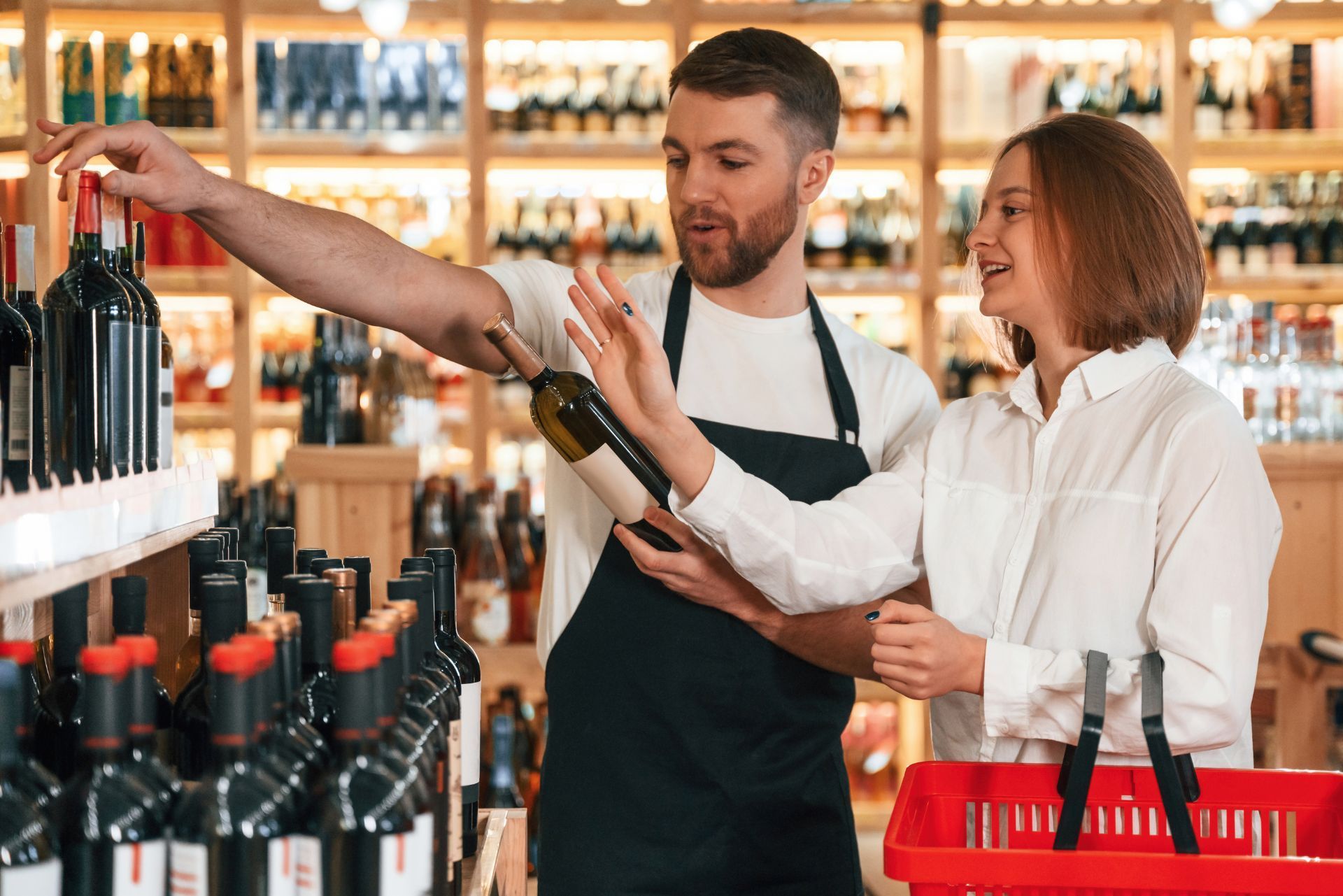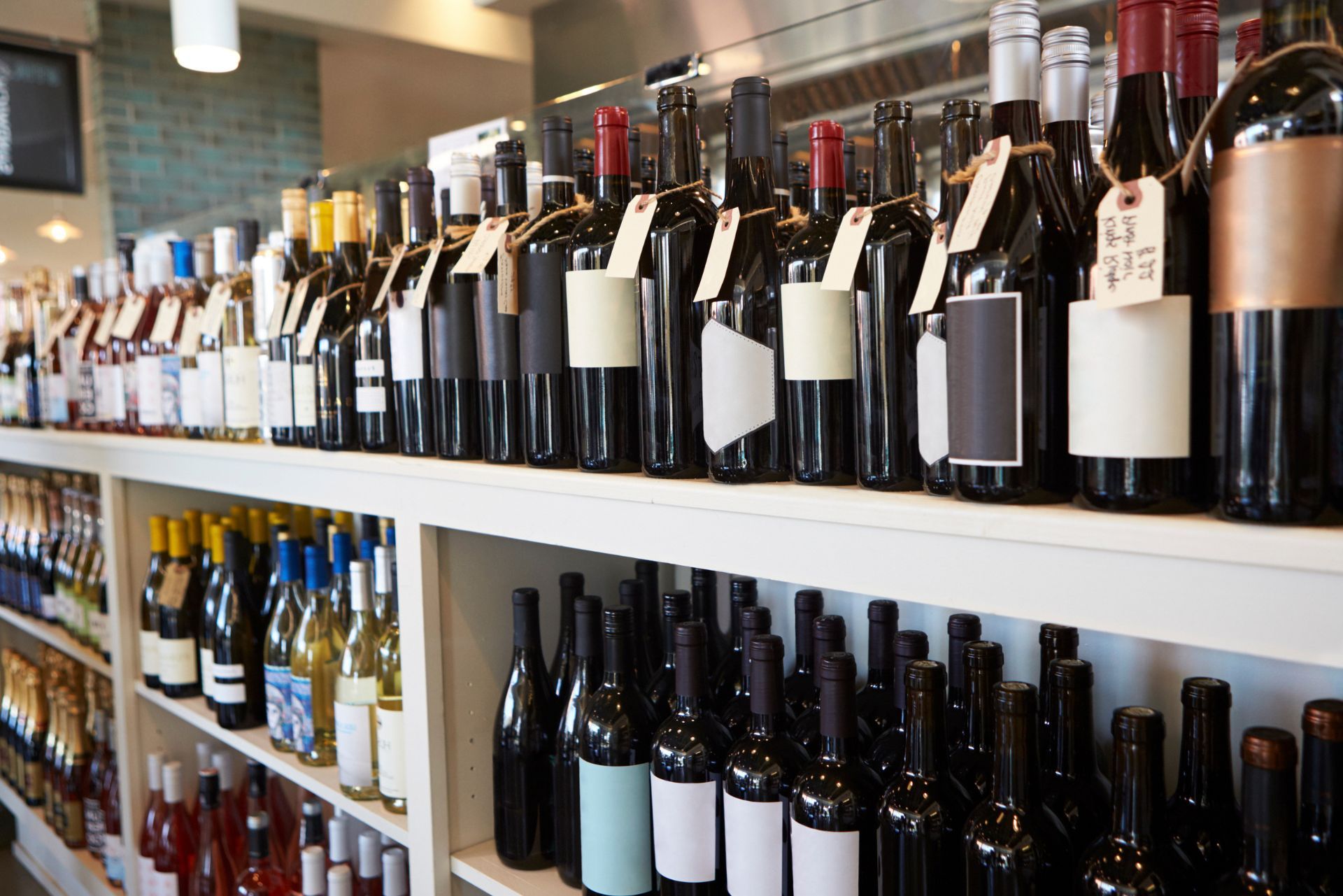
Index
Understanding the Michigan Liquor Market and Regulatory Landscape
Key Types of Insurance for Michigan Liquor Stores
Why Michigan Liquor Store Insurance is Essential
Factors Influencing Liquor Store Insurance Costs in Michigan
Steps to Obtain the Right Liquor Store Insurance in Michigan
Common Challenges and How Insurance Helps
Conclusion: Protecting Your Michigan Liquor Store Investment
Operating a liquor store in Michigan comes with unique challenges and responsibilities. With the state's alcohol industry valued at a staggering $6 billion, including nearly $1.9 billion in liquor sales alone in 2024, the stakes for business owners are high. Ensuring your liquor store is properly insured is crucial to protect your investment, comply with regulations, and navigate the complexities of this lucrative yet tightly regulated market.
In this comprehensive guide, we'll explore everything you need to know about Michigan liquor store insurance—from the types of coverage essential for your business to the regulatory environment shaped by the Michigan Liquor Control Commission (MLCC). We'll also highlight key statistics and insights to help you make informed decisions and safeguard your store’s future.
For more on Michigan’s liquor sales and industry trends, you can visit the Michigan Liquor Control Commission’s recent report.
Understanding the Michigan Liquor Market and Regulatory Landscape
Michigan’s liquor market is a dynamic sector with significant economic impact. In 2024, liquor sales in the state approached $1.9 billion, with Wayne County alone accounting for over $440 million in purchases. This highlights the concentration of demand in urban centers and the competitive nature of liquor retailing in these regions. The diversity of products available, ranging from local craft beers to international wines and spirits, reflects the evolving tastes of consumers, who are increasingly seeking unique and high-quality offerings. This trend has led to a surge in the number of microbreweries and distilleries across the state, contributing to a vibrant local economy and enhancing Michigan's reputation as a destination for beverage enthusiasts.
The Michigan Liquor Control Commission, established in 1933 and celebrating its 90th anniversary in 2023, plays a pivotal role in regulating the industry. It oversees more than 19,500 liquor licensees, split almost evenly between on-premises and off-premises retailers. This regulatory oversight ensures compliance with state laws, including the crucial requirement to check IDs, which remains impressively high at 90% in areas like East Lansing. The commission also actively engages in educational initiatives aimed at promoting responsible alcohol consumption and preventing underage drinking, recognizing the critical role that informed consumers play in maintaining a safe drinking environment.
However, audits have revealed challenges in oversight, including a lack of monitoring over nearly $499 million in alcohol orders and the loss of approximately 62,000 bottles in 2022. These findings underscore the importance of internal controls and risk management for liquor store owners. The implications of these lapses are significant, not only for compliance but also for the overall integrity of the market. As businesses navigate these challenges, many are investing in technology and training to enhance their operational practices, ensuring they meet regulatory standards while also fostering a culture of accountability and transparency.
Understanding this regulatory environment is essential when considering insurance needs, as compliance failures can lead to significant liabilities. More detailed insights into the MLCC’s operations and challenges can be found on FOX 2 Detroit. Additionally, the interplay between state regulations and local ordinances can create a complex landscape for liquor retailers, necessitating a thorough understanding of both to ensure successful operations. As the market continues to evolve, stakeholders must remain vigilant in adapting to changes in consumer preferences, regulatory updates, and the competitive landscape, all of which will shape the future of Michigan's liquor market.
Key Types of Insurance for Michigan Liquor Stores
Liquor store insurance is not a one-size-fits-all product. Given the specific risks associated with selling alcoholic beverages, a combination of coverage types is typically necessary to protect your business comprehensively. The unique nature of the liquor retail industry necessitates a tailored approach to insurance, ensuring that all potential liabilities are adequately addressed. Understanding the nuances of each type of insurance can empower liquor store owners to make informed decisions that safeguard their operations and assets.
General Liability Insurance
This is the foundation of any business insurance plan. It protects against claims of bodily injury or property damage that might occur on your premises. For liquor stores, this can include slip-and-fall accidents or damage caused by customers. Additionally, general liability insurance can cover legal fees associated with defending against such claims, which can be particularly costly. As liquor stores often see a high volume of foot traffic, maintaining a safe environment is crucial not only for customer satisfaction but also for minimizing liability risks.
Liquor Liability Insurance
One of the most critical coverages for liquor stores, liquor liability insurance protects your business against claims arising from the sale or service of alcohol. This includes lawsuits related to intoxicated customers causing harm to themselves or others. Given Michigan’s strict alcohol regulations and the MLCC’s emphasis on responsible sales, having this coverage is vital. Furthermore, liquor liability insurance can also cover legal defense costs, which can be substantial in cases involving serious incidents, making it an essential investment for any liquor store owner committed to operating within the law and prioritizing community safety.
Property Insurance
Protecting your physical assets, property insurance covers damage to your store caused by fire, theft, vandalism, or natural disasters. Considering the value of inventory—especially with Michigan’s liquor sales nearing $2 billion annually—this coverage safeguards one of your most significant investments. In addition to protecting against loss, property insurance can also provide coverage for business personal property, including equipment, signage, and fixtures, which are vital for daily operations. Ensuring that your property insurance policy is comprehensive can help mitigate the financial impact of unforeseen events and allow for a quicker recovery.
Business Interruption Insurance
If your store must close temporarily due to a covered event like a fire or severe weather, business interruption insurance compensates for lost income and ongoing expenses. This ensures your business can survive unexpected disruptions without catastrophic financial loss. Moreover, this type of insurance can cover fixed costs such as rent and utilities, which continue to accrue even when the business is not operational. Given the unpredictable nature of Michigan’s weather, especially during winter months, having this coverage can provide peace of mind and financial stability during challenging times.
Workers’ Compensation Insurance
If you employ staff, Michigan law requires workers’ compensation insurance to cover medical expenses and lost wages if employees are injured on the job. Given the physical nature of stocking and retail work, this coverage is essential. Additionally, workers’ compensation insurance can also protect your business from potential lawsuits related to workplace injuries, providing an extra layer of security. Investing in a safe working environment not only helps reduce the likelihood of claims but also fosters employee morale and productivity, which can be beneficial for overall business performance.
Cyber Liability Insurance
With many liquor stores now using online systems for license renewals and sales tracking, such as the MLCC’s streamlined online license renewal system that processed over 18,000 renewals in 2023, cyber liability insurance protects against data breaches and cyberattacks that could compromise sensitive customer or business information. As cyber threats continue to evolve, having this coverage is becoming increasingly important for businesses of all sizes. In addition to protecting against financial losses associated with data breaches, cyber liability insurance can also provide resources for crisis management, helping liquor store owners navigate the complexities of a cyber incident and maintain customer trust during recovery efforts.

Why Michigan Liquor Store Insurance is Essential
The liquor industry’s size and profitability in Michigan make it an attractive market but also one fraught with risks. In 2023 alone, Michigan sold over 10.5 million cases of spirits, generating nearly $2 billion in sales. This volume means large inventories and significant cash flow, both of which require protection.
Moreover, regulatory compliance is non-negotiable. The MLCC’s audits revealing lost inventory and oversight gaps highlight potential vulnerabilities in operational controls. Insurance acts as a safety net, mitigating financial losses from theft, liability claims, or regulatory penalties.
Additionally, liquor stores face unique liability exposures. Alcohol-related incidents can result in costly lawsuits, making liquor liability insurance indispensable. Without it, a single claim could jeopardize the entire business.
Furthermore, the competitive landscape of Michigan's liquor market necessitates that store owners remain vigilant about their risk management strategies. With the rise of e-commerce and direct-to-consumer sales, liquor stores must adapt to new business models while safeguarding their assets. This evolution can introduce additional risks, such as cyber threats and data breaches, which traditional insurance policies may not cover. Therefore, a comprehensive insurance plan tailored to the specific needs of liquor retailers is crucial for long-term sustainability.
In addition to the financial protection that insurance provides, it also enhances a store's credibility in the eyes of customers and partners. When consumers see that a liquor store is adequately insured, it instills confidence in their purchasing decisions, knowing that the business is committed to responsible practices. This trust can lead to increased customer loyalty and repeat business, further solidifying the store's position in a competitive market. For a deeper look at Michigan’s alcohol industry value and sales breakdown, visit the
Michigan Liquor Control Commission’s industry report.
Factors Influencing Liquor Store Insurance Costs in Michigan
Insurance premiums for liquor stores vary widely based on several factors. Understanding these can help you manage costs without sacrificing necessary coverage.
Location and Sales Volume
Stores in high-traffic areas like Wayne County, which leads the state with over $440 million in liquor purchases, may face higher premiums due to increased risk of theft or liability claims. Similarly, higher sales volumes often correlate with larger inventories and greater exposure. For instance, a store located near popular nightlife districts might experience not only higher foot traffic but also a greater likelihood of accidents or incidents, which can lead to increased claims and, consequently, higher premiums. Additionally, the demographic profile of the area can also play a role; areas with a younger population may see more incidents related to underage drinking, further influencing insurance costs.
Store Size and Inventory
Larger stores with extensive inventories require more substantial property and liability coverage, influencing premium costs. The value of your stock, especially in a market where liquor sales approach $2 billion, is a critical consideration. Furthermore, the type of inventory can also affect insurance rates; for example, premium spirits and rare wines may require specialized coverage due to their higher value and risk of theft. It’s essential for store owners to conduct regular inventory assessments and keep their insurance providers informed of any significant changes in stock levels or types to ensure adequate coverage.
Claims History
Insurance providers assess your store’s past claims to gauge risk. A history of frequent claims or regulatory violations can increase premiums or limit coverage options. Moreover, even minor incidents can have a long-term impact on your insurance profile. Stores that proactively manage risks and maintain a clean claims history may find themselves eligible for discounts or lower rates. Engaging in risk management practices, such as staff training on responsible alcohol service and incident reporting, can help mitigate potential claims and demonstrate to insurers that you are a low-risk client.
Security Measures
Implementing robust security systems, such as surveillance cameras, alarm systems, and strict ID-checking policies (which in East Lansing maintain a 90% compliance rate), can reduce risk and potentially lower insurance costs. In addition to these measures, investing in employee training on theft prevention and customer service can further enhance safety and security. Insurers often look favorably on businesses that take proactive steps to minimize risk, and documenting these efforts can be beneficial during policy negotiations. Furthermore, integrating technology such as point-of-sale systems that monitor sales patterns can help identify suspicious activities, contributing to a safer shopping environment.
Licensing and Compliance
Maintaining good standing with the MLCC and adhering to all licensing requirements, including timely renewals through the online system, demonstrates responsible management and can positively impact insurance assessments. Additionally, staying informed about changes in local and state regulations can help prevent unintentional violations that may lead to fines or increased premiums. Regular audits of compliance practices, along with participation in community programs focused on responsible alcohol sales, can further bolster your store’s reputation and reliability in the eyes of insurers. Engaging with local law enforcement and community organizations can also provide valuable insights into best practices for compliance and risk management, ultimately benefiting your insurance standing.

Steps to Obtain the Right Liquor Store Insurance in Michigan
Securing the appropriate insurance coverage involves careful planning and consultation. Here are key steps to guide you through the process:
Assess Your Risks
Begin by evaluating your store’s specific risks, including location, inventory size, number of employees, and customer base. Consider potential liabilities unique to liquor sales.
Consult with Specialized Insurance Providers
Work with insurers experienced in liquor store coverage. They understand the nuances of the industry and can tailor policies to your needs.
Compare Coverage Options
Request quotes from multiple providers and compare not only premiums but also coverage limits, exclusions, and deductibles. Ensure liquor liability and property insurance are included.
Implement Risk Management Practices
Enhance your store’s safety and compliance measures. This includes staff training on responsible alcohol sales, robust inventory controls, and security upgrades.
Review and Update Policies Regularly
Your business will evolve, and so will risks. Regularly review your insurance policies to ensure they remain adequate as your sales volume or operations change.
Common Challenges and How Insurance Helps
Michigan liquor store owners face several challenges that insurance can help mitigate:
Inventory Loss and Theft
With audits revealing losses of nearly 62,000 bottles valued at close to $1 million in 2022, inventory shrinkage is a real concern. Property insurance and crime coverage can help recover financial losses from theft or damage.
Liability from Alcohol-Related Incidents
Serving alcohol carries the risk of liability claims if intoxicated customers cause harm. Liquor liability insurance is specifically designed to protect against these potentially devastating lawsuits.
Regulatory Compliance Risks
Failing to comply with MLCC regulations can result in fines, license suspensions, or revocations. While insurance doesn’t cover fines, it supports your ability to manage legal costs and business interruptions that may arise from compliance issues.
Business Interruptions
Unexpected events like fires or natural disasters can force closures. Business interruption insurance ensures continuity by covering lost income and fixed expenses during downtime.
Conclusion: Protecting Your Michigan Liquor Store Investment
Operating a liquor store in Michigan is a promising venture within a robust $6 billion industry, but it demands careful attention to risk management and regulatory compliance. With liquor sales nearing $1.9 billion in 2024 and the MLCC’s active oversight, the environment is both lucrative and complex.
Investing in comprehensive liquor store insurance tailored to your specific risks is essential. It not only protects your physical assets and financial health but also provides peace of mind in a highly regulated market. From general liability to specialized liquor liability coverage, the right insurance safeguards your business against the unexpected.
Stay informed about industry trends and regulatory updates by following the Michigan Liquor Control Commission’s news releases, and regularly review your insurance policies to ensure they evolve with your business.
By taking these proactive steps, Michigan liquor store owners can confidently navigate the challenges of the market and focus on growing their business sustainably and securely.

